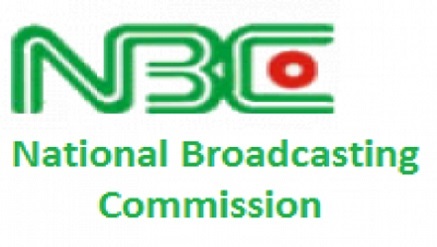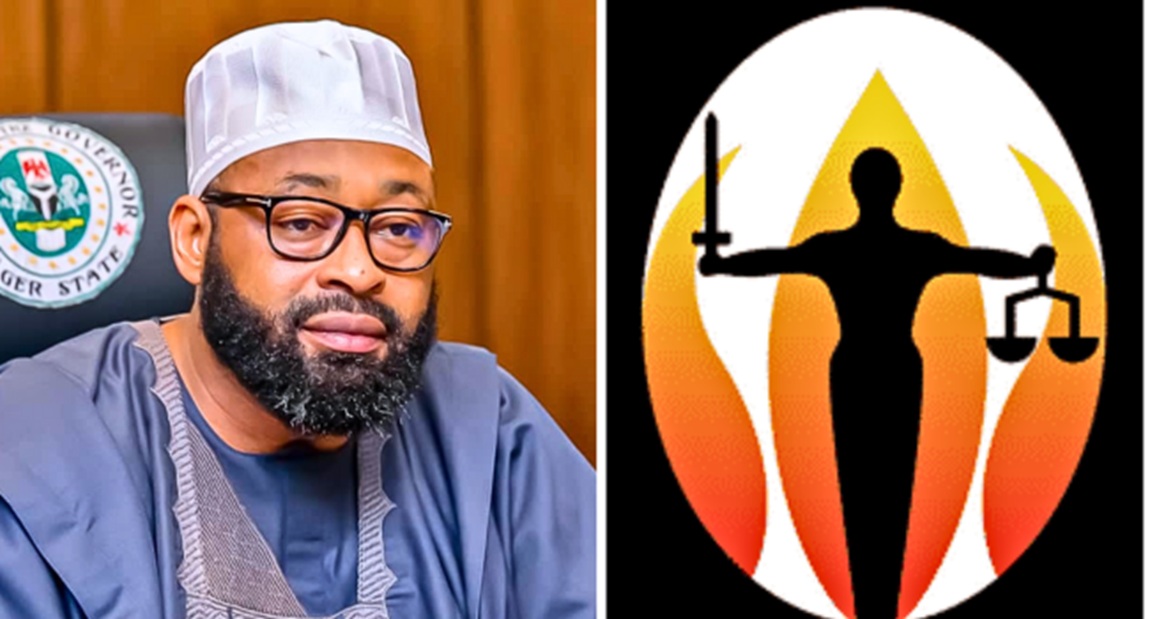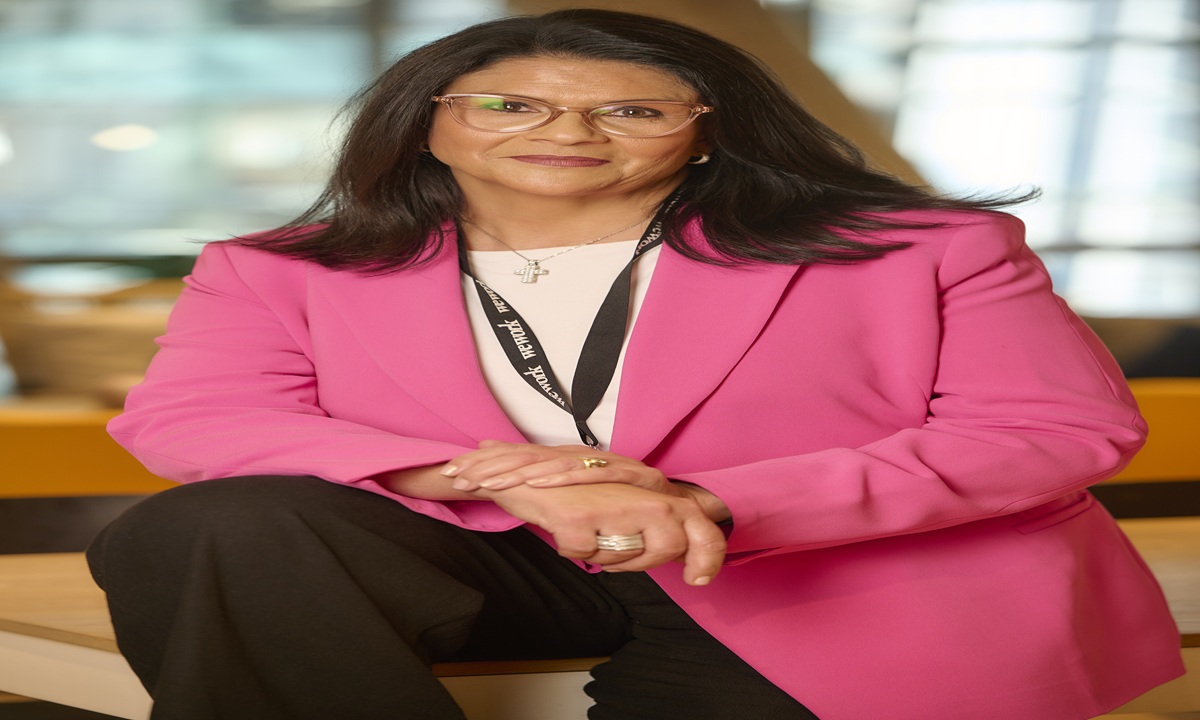Broadcasting
NBC, ITS Renew Hope of Digitization of Broadcast Industry

The long awaited digital switch-over (DSO) in Nigeria has become a reality as stakeholders are putting finishing touches for its take-off in Kwara. In March, the National Broadcasting Commission (NBC), had listed six states, one from each geo-political zone of the country, for DSO.
The states are Kaduna in North-West, Kwara in North-Central, Gombe in North-East, Enugu in South-East, Osun in South-West and Delta in South-South.
Nigeria transited from analogue to digital television viewing on April 30, 2016 in Jos, Plateau State capital after the Federal Government launched the pilot phase of the digital transmission project.
Alhaji Lai Mohammed, minister of Information and Culture, also recently attributed the success of the DSO to the collective effort of stakeholders namely, Digiteam Nigeria, Broadcast Signal Distributors, Set-Top-Box manufacturers, channel owners, partners such as CCNL and In-view Technologies and Call Centre Operators.
Mr. Musbau Rotimi Salami, general manager of Integrated Television Services (ITS), one of the signal distribution companies for Nigeria’s DSO implementation and handlers of the Ilorin switch-over project, speaking with Sunday Vanguard at the NTA Ilorin Transmission Station, Ganmo, during the visit of the National Assembly ad-hoc committee on DSO, called for the review of the current business model arrangement put in place by the NBC to allow for more favourable operating and cost maximisation.
ITS, which came into being as a result of the report from Presidential Action Committee Report on Digital Migration in Nigeria, has done the needful by taking on the infrastructure of the FRCN, NTA, etc to ensure digital distribution to Nigerians. Salami explained that the organisation had been ready since May 22, 2017, when they began to expect the NBC contractor to install the equipment on their platform.
His words,’’ We of the ITS have been ready since May 22, 2017, but the way the platform is designed by NBC is such that they provide the equipment, the conditional access program, the EPG. They have a contractor who does this and we have informed them since, to come and integrate those systems on our platform. So, we are ready, but the NBC needs to be ready too’’.
The ITS GM explained further that the assignment of his firm is to build a transmission platform that, “will receive and transmit signals both from national, regional and local here in Ilorin”.
He went on: “We have been able to receive signals on the DCS platform, those signals belong to the NBC”.
“Right now, there are about 22 of them, but they need to program signals specifically for Ilorin, they need to create programs specifially for Ilorin, they had to complete national signals and local insertions.
“For now, we are concentrating on those infrastructures of NTA that we used for signal broadcast.
But unfortunately, what we can only inherit from this transition is the mast and the transmitter hose. NTA’s transmitters are obsolete, they are analogue and they are not even supported by the equipment manufacturers anymore, so they are not useful in the new process.
“So, the only benefit we have here now is the mast, the transmission hose. Like Ilorin, their antenna is obsolete, their antenna is VHF, while we are operating on UHF; so virtually, the only thing we have gained here is the mast”.
He also said that for the process to be completed, the NBC needs to make the EPG system available, saying that it’s the signals that would be used to activate the decoder for the receivers at home.
Above all, Salami stressed the need for the NBC to make the set of boxes available and affordable for residents.
The ITS boss, who said the review of the existing business model is imperative to allow for equitable benefits for operators and stakeholders, noted that the business model has been a bone of contention for so long, especially for signal distributors.
“Already the Minister of Information and Culture has called for a review of it. We are eagerly awaiting the review as this will discourage the current situation where those who operate at the fringes and contribute minimally from reaping so much at the detriment of the major stakeholders”, he said.
Salami also assured the visiting NASS members that the Ilorin project met the requirements for the launch and commissioning but only waiting for the team from NBC to put its technical inputs.
Speaking on the significance of the National Assembly members visit, he asked it afforded the ITS the opportunity to explain its side of the story, adding that everything done at the Ilorin center had been to standard of global broadcasting equipment installation.
The ITS boss dismissed the claim that the equipment used at the Ilorin centre was obsolete.
He said such claim was misplaced and amounted to a lack of understanding of the technology behind the equipment used. He used the opportunity to appeal to Nigerians on the need to put the nation first in every aspect of business relationship.
“We must ensure that national interests come first above personal and parochial interests. Integrated Television Services is conscious of the history behind it and will work to protect the interest of the Nigerian television consumers and the entire broadcasting industry in Nigeria.”
On the quality of the DSO, he said: “When fully operational, the ITS will have on its platform over 30 channels on its Free TV bouquet, thus delivering unbeatable state of the art quality television experience and pocket friendly plan to the people of Kwara State”.
The members of the National Assembly, after the inspection of the equipment and interaction with stakeholders, told journalists that the digitalisation of broadcast industry was a done deal.
According to the leader of the six-man team, Hon Chris Emeka Azubogu, Deputy Chairman, House Committee on Appropriation,” we have seen the level of readiness and asked critical questions and they provided answers.
“We are sure from what they have said that they are ready, we have seen that the equipment are there, they are well and ready to hit the ground running.”
Broadcasting
SERAP, Editors Sue Niger Governor over Badeggi FM Shutdown Threat

Socio-Economic Rights and Accountability Project (SERAP) and the Nigerian Guild of Editors (NGE) have filed a lawsuit against Umar Bago, Niger State Governor, and the National Broadcasting Commission (NBC) over what they described as “the ongoing intimidation” of Badeggi FM Radio, Minna, and the threat to shut down the station.

This was contained in a statement on Sunday by Kolawole Oluwadare, deputy director, SERAP, accusing NBC of failing to stand in defence of the local station.
PUNCH Online had reported that Bago ordered the closure and the revocation of the licence of Badeggi Radio 90.1 FM in Minna over alleged public incitement.
However, in suit number FHC/L/CS/1587/2025, filed last Friday at the Federal High Court, Lagos, SERAP and NGE are seeking to determine “whether by Section 22 of the Nigerian Constitution 1999 (as amended) and section 2(1)(t) of the NBC Act, the NBC has the legal duty to protect Badeggi FM from the ongoing intimidation from the governor.”
They are also seeking “an order of perpetual injunction restraining the Niger state governor and NBC from further harassing, intimidating and/or threatening to shut down Badeggi FM radio, revoke its licence and profile the station’s owner.”
The groups argued, “The ongoing intimidation and threat by Mr Bago to strip Badeggi FM station of its licence, further threat to demolish the station’s premises and profile its owner is unlawful and a violation of the rights to freedom of expression, access to information, and media freedom.”
They described allegations of inciting violence against the station and its owner as “vague, unfounded and unsubstantiated and apparently made to silence the radio station.”
The suit, filed on behalf of SERAP and NGE by lawyers Kolawole Oluwadare, Oluwakemi Agunbiade, and Andrew Nwankwo, read in part, “The media plays an essential role as a vehicle or instrument for the exercise of freedom of expression and information – in its individual and collective aspects – in a democratic society.
“Intimidating, harassing and silencing critical or dissenting voices under the guise of vague and unsubstantiated national security concerns is a fundamental breach of the Nigerian Constitution and Nigeria’s international human rights obligations.
“The ongoing intimidation and harassment of Badeggi FM and its owner is capable of discouraging participation of the press in debates over matters of legitimate public concern ahead of the 2027 general elections.”
SERAP and NGE are therefore asking the court for the following reliefs, “A declaration that by the combined provisions of Section 22 Nigerian Constitution and section 2(1)(t) of the National Broadcasting Act, the NBC is obligated by law to protect Badeggi FM station and other broadcasting outlets in Nigeria from undue interference from unauthorised persons or entity.
“A declaration that the failure and/or neglect of the NBC to protect and defend the independence of the radio station against arbitrary executive interference constitutes a breach of its statutory duty to ensure fair, independent, and lawful broadcasting practices in Nigeria.
“A declaration that the ongoing intimidation and threat issued by Mr Bago to strip Badeggi FM station of its operational licence and further threat to demolish the station’s premises is unlawful and a violation of the rights to freedom of expression, access to information, and media freedom.
“A declaration that the threat issued by the Bago to strip Badeggi FM radio station of its operational licence encroaches upon the statutory powers of the NBC as provided for under section 2 of the National Broadcasting Commission Act.
“An order of perpetual injunction restraining the governor and NBC, its agents and privies from harassing, intimidating and/or threatening to revoke the operating licence of Badeggi FM station or any other broadcasting outlet in Niger State.”
It was said that no date has been fixed for the hearing of the suit.
Broadcasting
Amaarae Crowned Spotify’s EQUAL Africa Artist for August

Spotify has named Ghanaian trailblazer Amaarae as the EQUAL Africa artist for August, spotlighting her as one of the continent’s artists who continues to push creative and cultural boundaries with every beat, lyric, and look.

Amaarae, born Ama Serwah Genfi, raised between Ghana and the U.S.A often pulls her musical inspiration from the cultures and genres she grew up with. She has consistently pushed the boundaries of sound and identity, with her unique fusion of alternative, pop, R&B, and Afrobeats cementing her place as a singular voice in modern music.
Her musical journey took a turn in a computer lab in Ghana in 2009, where she taught herself to make beats on a cracked version of FL Studio. That moment sparked the fire for a career that would go on to produce game-changing projects like “The Angel You Don’t Know” and global hits such as “SAD GIRLZ LUV MONEY”.
Amaarae’s inclusion on Spotify’s Global Impact List for the first half of the year, highlighting the most-exported Ghanaian songs, was no surprise. She has become a symbol of how African music is travelling further, faster, and louder than ever before.
With her latest album BLACK STAR she returns to her Ghanaian roots with bold energy, crafting what she calls a “rallying cry for youth culture around the world. This album is bringing the alternative community to the forefront and being fearless about that.”
“I navigate the music world with balance, willpower, and strength. The challenges are real, don’t get me wrong, but I put my blinders on, lock into tunnel vision, and get to work. And when I come across another woman on the journey, especially a Black woman, I do my best to share knowledge, create opportunities, and lighten the load where I can,” says Amaarae.
As part of Spotify’s EQUAL programme, which amplifies women’s voices worldwide, Amaarae joins a growing list of African women shaping the future through sound and self-expression.
“Amaarae embodies the spirit of boundary-pushing creativity that EQUAL stands for,” says Phiona Okumu, Spotify’s Head of Music for Sub-Saharan Africa. “Her artistry is bold, distinct, and unapologetically authentic – qualities that continue to inspire a new generation of artists across the continent and beyond.”
We sat down with Amaarae to learn more about her and her music:
1. What is that one surprising thing your fans might not know about you?
Amaarae: I’m one step away from being legally blind! My vision is a -7 and I have astigmatism!!
2. When did you realise that making music was in your destiny and what is your WHY for pursuing this craft?
Amaarae: When I moved back home to Ghana in 2009, I was learning how to make beats and record myself at the back of the computer lab. Someone had installed a cracked version of FL.
3. Which African songs or artists did you grow up listening to?
Amaarae: The list goes on and on. Daddy LUMBA (RIP), Terri Bonchaka, MzBel, Abrewa Nana, Obrafour’s legendary album Pae Mu Ka, Sarkodie, Kwadwo Antwi. I could go all day.
4. To someone who has never heard your music, how would you describe the sound, tone, and style?
Amaarae: Let’s encourage listeners to be curious and adventurous! If you’re reading this and you’ve never heard my music, I dare you to go listen! And tell me how YOU would describe my sound.
5. Any advice for someone dreading following their dreams?
Amaarae: The regret does more damage than the effort.
Broadcasting
Humans + Machines: Building the workforce of the future

By Ursula Fear, Senior Talent Programme Manager | Salesforce
Is AI coming for your job, or is it already working beside you? As its use becomes more routine, artificial intelligence is looking less like a threat and more like a teammate: answering queries, making decisions, chasing leads, processing invoices, and drafting content around the clock.

Ursula Fear, Senior Talent Program Manager, Salesforce
This new class of digital labour is changing how teams function, how targets are met, and how people spend their time at work. From now on, almost every job, team, and company will involve AI agents – systems that can analyse vast datasets, apply human-like reasoning, and act independently. Their presence is set to influence workflows, increase productivity, support innovation, and redefine roles across the organisation.
Rather than replacing people, AI is tilting the workload. Salesforce research shows that 23% of HR teams plan to redeploy employees into roles that make better use of their uniquely human strengths. At the same time, agentic AI adoption is projected to surge by 327% over the next two years (from roughly 15% adoption today to about 64% by 2027).
This shift is tied to anticipated productivity gains of 30% per employee and labour cost reductions of 19%, equating to about $11,000 in savings per employee annually, based on Organisation for Economic Co-operation and Development (OECD) wage averages. Rather than replacing people, organisations are preparing to reskill and redeploy workers, enabling humans to focus on higher-value roles that emphasise creativity, strategy, and interpersonal skills.
A recent Gartner poll further found that 95% of customer service teams intend to retain human agents to help define and guide the role of AI, reinforcing the value of a “digital first, not digital only” approach. Gartner further says that by 2027, half of the organisations that planned to significantly reduce their customer service workforce will abandon those plans, highlighting the limits of going fully “agentless”.
For African countries, the rise of digital labour presents an opportunity to build modern, inclusive workforces without being bound by outdated development models. But realising this potential depends on sustained investment in skills training, digital infrastructure, and equitable access to AI tools.
Train for tomorrow
Africa has the world’s youngest population. It’s bursting with entrepreneurial energy. But many young people still don’t have access to the tools and skills that will define the next era of work. If the continent wants to lead in the digital labour revolution, it should act now by investing in digital infrastructure, prioritising skills development, and forging partnerships that make future-focused training widely accessible.
Yes, the skills gap is real and broadband internet is still a luxury in many communities. But on the upside, AI training doesn’t require a university degree. Much of it is free, online, and accessible to anyone with a smartphone and a curious mind.
That opens the door to governments, educators, businesses, and civil society to step up to update school curricula, expand digital infrastructure, and support public-private training partnerships. All of this matters: not just for economic growth, but for social inclusion, too.
If these foundations are put in place, African countries could not only meet the needs of their growing population but also leapfrog outdated development models.
From entry-level to in-demand
When AI begins to handle the simpler tasks, it’s easy to worry about what’s left for those starting out. Entry-level jobs aren’t disappearing though. Instead of doing routine work, newcomers will now need to build skills in oversight, collaboration, and using AI tools effectively from day one. The ladder still exists; it just starts in a different place.
This will require a different kind of training – not just technical know-how, but in soft skills like empathy, adaptability, ethical judgement, and communication, which are all human traits that help teams thrive.
AI’s presence in the workplace may be concerning, with reports of job cuts due to its adoption (here, here, here, and here), but all is not as it seems.
Research suggests a more balanced perspective: One of the most comprehensive studies, from the National Bureau of Economic Research, tracked 25,000 workers across 7,000 Danish firms using AI chatbots. It found no significant changes to jobs, wages, or working hours. Productivity rose by around 3%, without leading to layoffs.
The St. Louis Fed found something similar. Based on large-scale surveys in the US, researchers reported one in four workers now use generative AI weekly, saving on average just over two hours a week. Spread across the entire labour market, that translated into a 1.1% productivity gain. Crucially, there was no sign this efficiency came at the cost of jobs.
Adding to this, a 2024 study by Mäkelä and Stephany analysed over 12 million US job listings and revealed that demand is surging for “AI-complementary” skills such as resilience, teamwork, digital literacy, and analytical thinking. These are the very human capabilities that help people work effectively with AI. The study found AI-focused roles are nearly twice as likely to list these skills, and they command wage premiums of 5–10%. Even more telling: the positive impact of these complementary skills outweighs the substitution effects of AI by up to 70%.
These findings all suggest that AI isn’t replacing workers; it’s helping them work smarter and more efficiently. To thrive in this blended future, we need to prepare today, by building the right skills, expanding access, and embracing AI not as a threat, but as a partner in progress.
Because the future of work won’t be entirely human, nor entirely automated – it will be a blend of both.

 Telecom2 days ago
Telecom2 days agoAirtel, Vodacom sign Network Infrastructure Agreement to Drive Digital Inclusion

 Telecom2 days ago
Telecom2 days agoNCC Bars Ex-Officials from Joining Telecom Firms for 5 Years

 E-Business2 days ago
E-Business2 days agoFirm Shares Tips for Safer Remote Working

 E-Financial2 days ago
E-Financial2 days agoWorld Bank Approves $300m Loan to Support IDPs in Northern Nigeria

 E-Financial2 days ago
E-Financial2 days agoUBA Unveils Revamped Website, Heralds New of Digital Experience

 Telecom2 days ago
Telecom2 days agoElon Musk Threatens to Sue Apple Over Alleged App Store Bias Favoring ChatGPT

 General News2 days ago
General News2 days agoHuawei Hosts MTN MIP Fellows for Immersive Tech Experience in Lagos

 General News2 days ago
General News2 days agoMasterCard Predicts Africa’s AI Market to Soar to $16.5Bn by 2030














